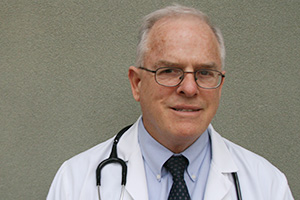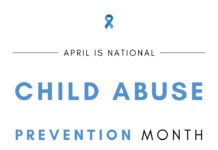
Opinions expressed are the writers’ and not necessarily the views of The Catholic Sun or the Diocese of Phoenix.
We don’t see much of severely disabled children in America. Years ago, many were institutionalized. In Arizona that meant the Children’s Colony in Coolidge or the State Hospital in Phoenix. Today various services facilitate their living in the community, sometimes with family.
Still, why we don’t see very many? For one thing, most women – if they have any children at all – are only having one or two. But there are other, more troublesome reasons.
Years ago
The colonies are declining now – Coolidge has accepted no new patients for years. But in 1970, when I was a first-year medical student, I visited the Southern Training Colony outside Milwaukee. Then such places were vibrant with patients.
My friend Greg Harrington showed me around. He was learning neurology then, but today he’s a venerable professor at the Medical College of Wisconsin. In the play areas, Greg would usually be surrounded immediately, by happy, jostling residents. They would try to shake his hands, touch him, and cry out, “Doctor, Doctor”. Greg would point to me and grin, “He’s a doctor too!” And I would get the same treatment from these disabled – yet delightful – youths and adults.
We saw some dismal back wards too, with profoundly disabled individuals, some restrained to keep them from harm, others held in wheeled potty chairs. There were children and adults with purplish discolorations, wasting, twisted physical deformity, and profound mental retardation. Not pleasant, yet…
Sometimes the unfamiliarity is overwhelming
See, I had grown up with two disabled younger brothers – there was never a thought of institutionalizing them – and I knew firsthand, and just accepted the challenges of caring for them. But that day, seeing so many at once, I began to wonder, what is the good of these people? I didn’t mean that we shouldn’t care for them, but why are they here?
Other troublesome reasons
Whatever the reason for their being here, they are nevertheless often refused by their parents. Today many are diagnosed in utero, and simply aborted, often late term. And for those who escape detection or otherwise survive, there is growing advocacy for “post-term abortion” – another word for infanticide.
President Ronald Reagan signed the Child Abuse Prevention Amendments in 1984 making infanticide of disabled babies illegal, but it still happens. Indeed, our current President, when he was an Illinois state senator, voted repeatedly against legislation intended to save babies born alive after attempted abortion.
So along with abortion, will infanticide soon become legal and accepted? Well, in Belgium there is, or soon will be, a law in which a child – you read that right – may request assisted suicide or euthanasia. Oh sure, just now the child must be terminally ill. But that can change easily enough. It already has with adults – in widening areas of the US where doctors may now legally assist with suicide. Plus, you have to wonder, who’s really requesting, the child or his parents?
Should we euthanize those with a poor quality of life? Who can judge? Or to ease suffering? It’s rare that modern treatment cannot manage pain. Unless suffering is due to loneliness, or depression, or abandonment by loved ones. Then wouldn’t death be the antithesis of treatment?
Catholics to the rescue?
The Catholic vote can make most things in America happen – or not. And we now have 55 percent, who believe abortion should be legal in all or most cases according to a Washington Post and ABC poll in July. I suspect these pro-choicers will not find infanticide morally problematic either. Killing gets easier once it starts.
Certainly, extraordinary means of keeping someone alive may be morally discontinued if hopeless. That is not comparable to allowing people to die of natural causes, and it is a far cry from killing simply because of weakness, voicelessness, or being pronounced unfit. Expect that care givers – should they resist killing – will likely feel coercive measures, including threats to their professional status. The justifications held up to us will mostly be economic, though presented in a language of compassion.
But without these people we will become so much poorer. As I watched the staff that spring afternoon in Wisconsin, the answer to why these profoundly disabled are here became obvious. They are gifts, not accidents. They summon all of us to love and to be loved, in a very special way. Benedicamus Domino.






